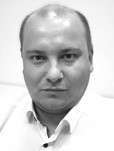On development of theoretical-cognitive basics of sciences on physical culture
Фотографии:
ˑ:
Yu.N. Nazarov, associate professor, Dr.Phil.
E.V. Fedotov, postgraduate student Shuya state pedagogical university, Shuya
Key words: culture, corporality, physical culture, corporal culture, sport, practice, theory, perception, theoretical-cognitive basics.
Introduction. The theoretical-cognitive problems of the science of physical culture and sport have been actively discussed in the journal "Teoriya i praktika fizicheskoy kultury" for many years. The authors of the journal’s papers (V.B. Korenberg, S.S. Korovin, L.I. Lubysheva, V.I. Stolyarov etc.) classify the problems they have selected based on the personal professional experience and individual preferences in research. For example, G.F. Vasil’ev suggests considering the issues of athlete’s psychological training "in terms of modern esotericism", according to which, as he asserts, “physical body occupies only one sphere in the human nature and other six – belong to others, and they control and guide (sic!) the physical on its life path" [2, p. 52]. Laying aside the "epistemological" ideas of G.F. Vasil’eva on seven spheres of the "human nature", let us turn to formal logical conclusions of participants of the scientific discussion.
The purpose of the present study was the analytic survey of theoretical-cognitive basics of science on physical culture.
Results and discussion. Now let us consider the main theoretical-cognitive issues of sciences on physical culture.
F.I. Sobyanin, generalizing the issues most acute in the marked discussion, formulates four statements and seeks to discover the "cases "for" and "against".
In order to clarify the essence of physical culture one is to appeal to the classic definitions of the word "culture", which has not been neither a philosophical category nor a term of some science till the last third of the XIX century, and came to popular journalism and everyday language less than a hundred years ago, influenced by the slogan "proletarian cultural revolution", which popularized the question on the essence of culture?".
The first scientific-theoretical definition of culture was given by Russian naturalist and social thinker N.Yu. Danilevsky in the book "Russia and Europe".
E. Tylor gave another scientific definition of culture in his book "Primitive Culture”, which is popular in the Western scientific community (Primitive culture, 1871, transl. into Russian, 1896).
Considering physical culture as a special activity presupposes putting physical culture in a line with mental culture and spiritual culture.
There is no either logical, or historical basis for the wide spread opinion on the fact that "culture" is a necessary condition and environment, of human life and activity". Culture is not the condition of human life, but is human life itself in all its joint elements: work instruments, means and methods, process and results of work. Any element of culture in the society results from human activity, presupposes a social formation and, on the contrary, any part of society is an element of culture, made by mind and hands of man, social creature. With the same content, the concepts "culture" and "society" are used in different sciences for various purposes. Sociology and social philosophy prefer the term "society". Ethnography and ethnology, social anthropology and cultural anthropology, various culturological disciplines use the term "culture", defining some aspects of human life.
Conclusion. The concept of “physical culture” (corporal culture, culture of human body, Korperkultur) includes a combination of human actions aimed at changes (formation) of human body in its phased ontogenetic and philogenetic historical movement both in the global and local aspects. One physical culture (ethnic, local, historically-formational etc.) differs from another, mainly, by the means and methods man uses to shape his body.
Bibliography
1. Abasov, Z.A. Methodological analysis of the concept system of theory of physical culture / Z.A. Abasov, V.V. Kondrat'ev // Teoriya i praktika fizicheskoy kultury. – 2010. – № 4. – P. 25–28. (In Russian)
2. Vasil’ev, G.F. Sports science, its problems and possible ways of its solution / G.F. Vasil’ev // Teoriya i praktika fizicheskoy kultury. – 2012. – № 4. – P. 50–53. (In Russian)
3. Danilevskiy, N.Ya. Russia and Europe / N.Ya. Danilevskiy. – Moscow: Kniga, 1991. – 574 P. (In Russian)
4. Korovin, S.S. Theoretical-methodological basics of the concept of professional physical culture / S.S. Korovin // Teoriya i praktika fizicheskoy kultury. – 2012. – № 2. – P. 23–27. (In Russian)
5. Nazarov, Yu.N. Philosophic study of N.Ya. Danilevskiy on culture and modernity/ Yu.N. Nazarov // Anti-crisis potential of Russian intellectual culture (collected researches). – Ivanovo; Shuya, 2011. – P. 229–236. (In Russian)
6. Sobyanin, F.I. On the essence of physical culture (or On one subjected discussion) / F.I. Sobyanin // Teoriya i praktika fizicheskoy kultury. – 2010. – № 4. – P. 20–24. (In Russian)
7. Taylor, E. Primitive culture: transl. from Engl. / E. Taylor – Moscow: Politizdat, 1989. – 573 P. (In Russian)
Author’s contacts: yurnazarov@mail.ru



 Журнал "THEORY AND PRACTICE
Журнал "THEORY AND PRACTICE